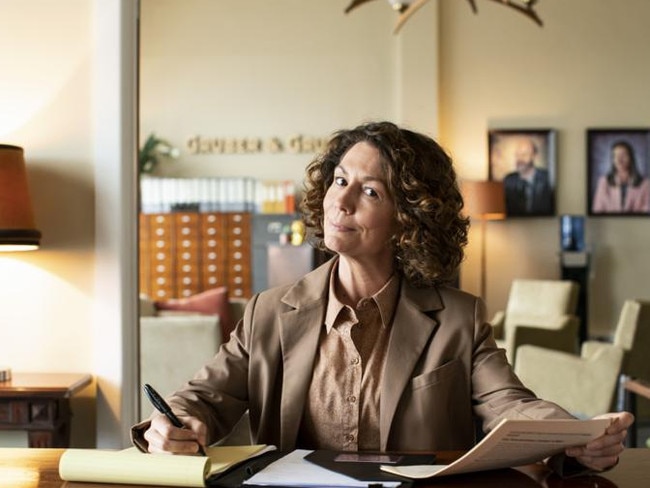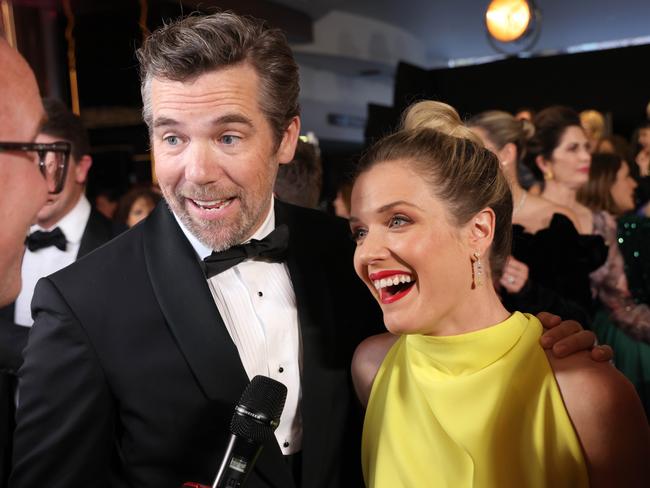Angela Mollard: Whoever said women are not funny - joke’s on them
The fact is women aren’t just funny, fresh and cleverly reading the room, they’ve co-opted streaming services into their own personal stage for a reimagined brand of episodic comedy, writes Angela Mollard.
Opinion
Don't miss out on the headlines from Opinion. Followed categories will be added to My News.
‘Why Women Aren’t Funny”.
Remember that headline? No ambiguity there. No out-loud wondering from the late Christopher Hitchens about the ability of women to make men laugh. Rather, in a lengthy and not particularly funny treatise for Vanity Fair in 2007, the much-feted writer was unequivocal that women were comically inferior.
“Why are women, who have the whole male world at their mercy, not funny?” he queried, before following it up with the equally inflated: “Please do not pretend not to know what I am talking about.”
Hitchens went on to posit that women couldn’t be funny because they were wired for child-bearing and couldn’t risk the continuation of the species for such frivolities as wit.
He said something about us being intelligent but then promptly contradicted himself by saying we were ruled by “moons and the tides” and were prone to being captivated by “romantic love, crystals and stones, lockets and relics”.
Had he not died in 2011 before #MeToo there’s every likelihood he’d have been castrated.
Which is a shame. The death bit, I mean. Because had he mansplained on for another decade or so a new generation of writers and performers might’ve changed his mind.
Because the fact is women aren’t just funny, fresh and cleverly reading the room, they’ve co-opted streaming services into their own personal stage for a reimagined brand of episodic comedy.
Heartened by the success of Tina Fey and Amy Poehler on Saturday Night Live in the first decade of the new century, a new clutch of women from Phoebe Waller-Bridge in Fleabag to Sharon Horgan in Catastrophe and now our own Kitty Flanagan and Harriet Dyer are storming the screen.

Every time I glance at my phone another mate in the UK is messaging to tell me how much they love Colin From Accounts and isn’t it hilarious when Dyer’s character Ash does a poo and can’t flush it away so throws it out the window where it is found by her boyfriend, played by her husband Patrick Brammall, who thinks it was produced by their dog.
Incidentally, it was a similar real-life log disposal drama that led Dyer to write the scene. As she has said, she wanted to create a character who was real: “I wanted to flash a nipple and take a shit on screen, complete with groaning.”
Kitty Flanagan’s Fisk is proving equally successful after little more than a week streaming on Netflix. The Logie-winning ABC comedy has gained a huge new international audience with Flanagan’s titular Helen Tudor-Fisk, a divorced, uncomfortable middle-aged woman in a polyester brown suit, pushing the show into the streaming service’s top 10.
Written with her sister Penny, Flanagan’s creation has been heralded by one screenwriter as “a masterpiece on par with Ricky Gervais’s The Office” which is surprising considering it almost didn’t make it to the screen.
Fisk, Flanagan was told, was unappealing and unlikeable. Her character wouldn’t work.
Yet it’s exactly these uncomfortable, idiosyncratic and often daggy characters who are proving so loveable in a rapidly evolving culture that no longer needs its leads to fit a mould.
More than 25 years after Ally McBeal extended the Friends prototype by channelling a character who was kooky but adorable, there’s a more nuanced and relatable edge to this generation’s funny women. We like them because they are uncomfortable.

Or they’re transgressive like Waller-Bridge in Fleabag or cynical like Horgan in Catastrophe or mind-blowingly original like Diane Morgan playing the deadpan Philomena Cunk in Cunk On Earth.
In fact Morgan, so compelling in Gervais’s After Life, has such edge-of-seat appeal she can make an audience laugh simply by tripping.
When women command the pen or the set, they illuminate the more amusing or embarrassing aspects of being a woman.
Fleabag falls for a priest, Fisk is annoyed by coffee culture and Dyer’s Ash sleepwalks, confusing her boyfriend’s bedside drawers for the toilet.
Commercial success means they’re also mining the comedy potential from previous eras. Greta Gerwig’s inspired take on Barbie has electrified cinemas while the award-winning Derry Girls, created by Lisa McGee, pairs two conflicts: the Troubles in Northern Ireland in the 1990s and teenage girls.
With a glorious soundtrack, led by the Cranberries’ Dreams, it ricochets through teen mishaps and spats and chaos that, however old you are, you’re transported to your own adolescence.
Gemma Arterton in Funny Woman, based on the Nick Hornby novel, is similarly endearing. When her character Barbara wins the Miss Blackpool Belle beauty contest in 1964, the local reporter seeks quotes from her boyfriend and her dad.
“I am here, if you want to ask me anything?” she says to him.
“No thanks, I’ll just make the rest up,” he sneers, prompting Barbara to ditch Blackpool and head to London to follow in the footsteps of Lucille Ball.
Who knows if the late Hitchens would have found these women funny. Frankly, who cares. Because this new clutch of comedy heroines remind me of an Irish scribe of my acquaintance named Ted who was scorned by a new lover for the meagre size of his appendage.
“Who are you going to pleasure with that?” she asked him.
Ted had one word: “Myself.”




